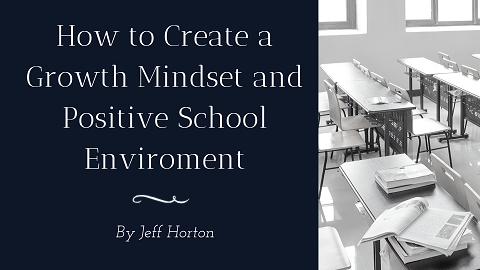Many educators have the experience of teaching a student that feels they aren’t smart: They were only born with so much talent and aptitude, and that’s that. This ‘fixed mindset’ can be frustrating to work through for both the educator, who wants the student to succeed, and for the student, who might feel overwhelmed or that expectations are too high.
A ‘growth mindset’ is more positive for the student’s mental health and educational prospects. This mindset is built upon the belief that our mental abilities are fluid, always developing and growing.
This mindset is a foundation to build upon for the student and can push them to succeed far beyond the classroom. But it can be difficult to foster a growth mindset in many educational institutions. Students are inundated with test scores that can feel like a prescription of their intelligence, rather than a current performance review. Here are a few different methods and tips to create a growth mindset for your students.
1.Emphasize the Process
A fixed mindset will focus on the goal, and whether or not the student feels capable of achieving it. A growth mindset will focus on the process itself, thinking through different methods and processes of achieving.
Focus on the importance of practice, asking questions, or finding different strategies that work for the students.
2. Work on the Worst
“I’m not good at math” is no excuse for not studying or practicing! Many students may feel resigned to having a ‘worst subject’ that they just won’t succeed at – push through this with them! Emphasize that every little bit of progress is important, that the hard work itself is rewarding, and make sure to celebrate every victory.
3. Work and Progress
When discussing their classwork, always emphasize how much work they’ve put into the class. It can be easy for students to just think about work as something that is done, and not pay attention to their efforts – help them see their efforts and progress. Avoid saying they’ve tried their best or similar superlatives – these can imply that they have done all they can. Show them they can always do a little more.
4. Bring in the Parents
A healthy attitude starts at home. Discuss these kinds of mindsets and tactics with parents to help foster a growth mindset at home as well. An educator only spends so much time with a student and only has so much authority in the student’s mind. Parental support can be a great help in reinforcing these concepts.
5. Live the Growth Mindset Yourself
Even an educator can get stuck in a certain mindset when their students are involved. Being with students every day, you may get used to a certain perception of their personalities, thoughts, and abilities. Don’t let yourself view them in terms of ‘good’ or ‘bad’ students. They don’t have ‘strengths’ or ‘weaknesses,’ your students are individuals with likes and interests. The subjects they succeed at are ones they’ve put more time and effort into.
